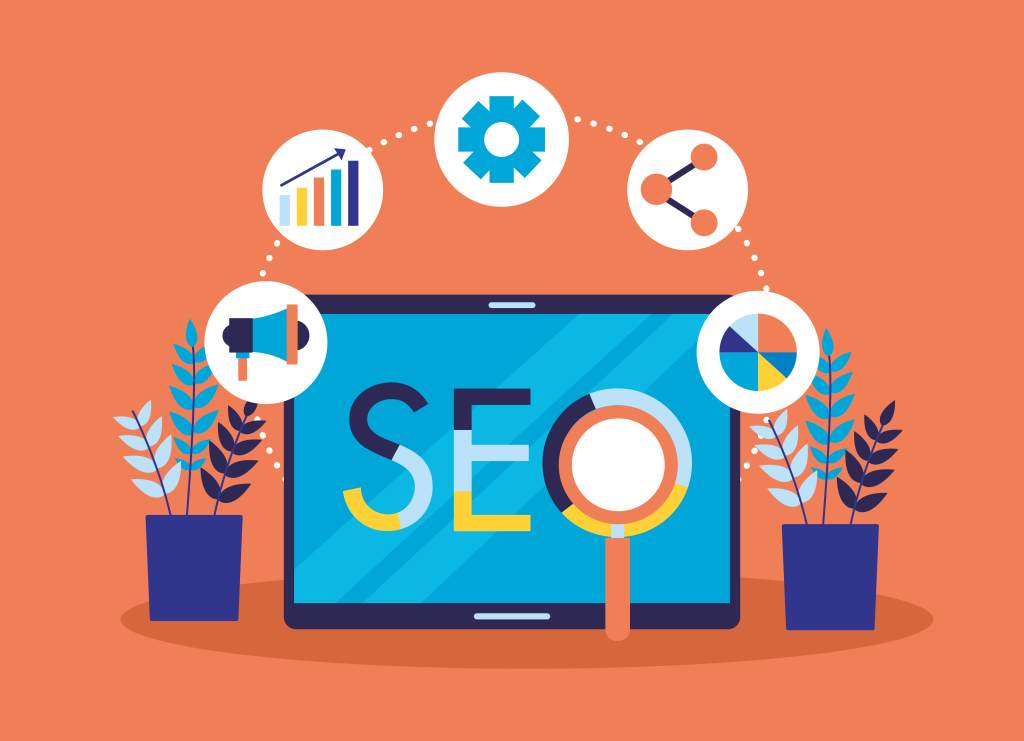
Introduction
As a small business owner in 2025, navigating the world of SEO can feel like trying to solve a puzzle while the pieces keep changing shape. Two terms you’ve likely encountered are “Local SEO” and “Organic SEO” – but understanding the difference between them (and knowing which one deserves your attention) can be the key to your digital marketing success.
At Engage Ascend Creative, we’ve helped countless small businesses boost their online visibility, and we’ve noticed that many owners struggle with this exact question: should I focus on local SEO, organic SEO, or both?
The truth is, the right answer depends entirely on your business model, goals, and target audience. This guide will break down everything you need to know about both approaches so you can make informed decisions about where to invest your time and resources in 2025.
What is Local SEO?
Local SEO focuses on optimizing your online presence to attract customers in a specific geographic area. Think of it as putting your business on the digital map of your community.
Who Needs Local SEO?
If your business serves customers in a specific location or within a certain radius, local SEO should be a priority. This includes:
- Restaurants and cafes
- Retail stores with physical locations
- Service providers like plumbers, electricians, and lawyers
- Medical practices and wellness centers
- Auto repair shops
- Local attractions and entertainment venues
Why Local SEO Matters in 2025
In today’s digital landscape, 46% of all Google searches have local intent. When someone pulls out their phone and searches “coffee shop near me” or “best dentist in [city name],” they’re typically ready to make a decision – and fast.
Local SEO helps your business appear in these high-intent searches, positioning you perfectly when potential customers are most likely to convert.

Key Local SEO Strategies for 2025
1. Optimize Your Google Business Profile
Your Google Business Profile (formerly Google My Business) is the cornerstone of your local SEO strategy. In 2025, this platform has evolved significantly, offering even more features to showcase your business.
Action steps:
- Claim and verify your listing
- Complete every section with accurate, detailed information
- Add high-quality photos that update regularly
- Use Google’s Q&A feature to address common customer questions
- Take advantage of Google Posts to share updates, offers, and events
2. Generate and Manage Reviews
Reviews have become the digital currency of trust. In 2025, consumers rely heavily on reviews before making purchasing decisions, and search engines use them as ranking signals.
Action steps:
- Implement a systematic approach to requesting reviews from satisfied customers
- Respond to all reviews – positive and negative – professionally and promptly
- Address negative feedback constructively and take the conversation offline when necessary
- Showcase positive reviews on your website and social media channels
3. Maintain NAP Consistency
NAP (Name, Address, Phone Number) consistency across all online platforms remains crucial in 2025. Search engines cross-reference this information to verify your business’s legitimacy.
Action steps:
- Ensure your business information is identical across all directories and platforms
- Regularly audit your listings to catch and correct inconsistencies
- Use a citation management tool to simplify this process
4. Create Location-Specific Content
Content that speaks directly to your local audience signals to search engines that you’re relevant to local searches.
Action steps:
- Develop location-specific service pages
- Create blog posts about local events or news
- Include location-based keywords naturally throughout your content
- Feature customer success stories from your community
What is Organic SEO?
Organic SEO refers to the practice of optimizing your website to rank higher in the unpaid (organic) search results for relevant queries, regardless of location. It’s about building overall online authority and visibility.
Who Needs Organic SEO?
Organic SEO is beneficial for virtually all businesses, but it’s especially important for:
- E-commerce businesses
- Content publishers and blogs
- Software companies
- National or international brands
- Businesses with digital products or services
Why Organic SEO Matters in 2025
Even as search technology evolves, organic search results remain the primary way people discover new websites. In 2025, with increased competition and more sophisticated search algorithms, a strong organic SEO strategy is essential for:
- Building long-term brand visibility
- Establishing authority in your industry
- Driving consistent traffic without ongoing ad spend
- Creating multiple touchpoints in the customer journey
- Supporting content marketing initiatives

Key Organic SEO Strategies for 2025
1. Create High-Quality, Valuable Content
In 2025, content quality and relevance remain at the heart of successful SEO. Google’s AI-driven algorithms have become increasingly adept at understanding user intent and evaluating content depth.
Action steps:
- Focus on comprehensive, in-depth content that fully addresses user queries
- Structure content with clear headings and subheadings
- Include relevant multimedia elements to enhance engagement
- Update existing content regularly to maintain relevance
- Create content clusters around key topics in your industry
2. Optimize Technical SEO Fundamentals
Technical SEO ensures your website is accessible, fast, and user-friendly – all critical factors in 2025’s ranking algorithms.
Action steps:
- Ensure your website is fully mobile-optimized
- Improve page load speed (aim for under 2 seconds)
- Implement schema markup to help search engines understand your content
- Fix broken links and crawl errors
- Create a logical site structure with clear navigation paths
3. Build Quality Backlinks
In 2025, backlinks continue to serve as “votes of confidence” from other websites, signaling your content’s value and authority.
Action steps:
- Create linkable assets (research, original data, comprehensive guides)
- Develop relationships with industry publications
- Participate in relevant guest posting opportunities
- Monitor competitors’ backlink profiles for opportunities
- Regularly audit your backlink profile to disavow toxic links
4. Optimize for Voice and Visual Search
As search diversifies beyond text, optimizing for voice and visual search has become essential in 2025.
Action steps:
- Include conversational, question-based content to capture voice searches
- Optimize images with descriptive file names and alt text
- Structure content to directly answer common questions
- Consider adding FAQ sections to capture featured snippets
Local SEO vs. Organic SEO: Key Differences
| Aspect | Local SEO | Organic SEO |
|---|---|---|
| Primary Goal | Ranking in a specific geographic area | Ranking for relevant topics regardless of location |
| Target Audience | Local customers | Anyone interested in your content/products |
| Key Platforms | Google Business Profile, local directories | Your website, industry publications |
| Search Intent | Often immediate, transaction-focused | May be informational, navigational, or transactional |
| Competitive Landscape | Competing with local businesses | Competing with all online content on the topic |
| Primary Metrics | Local pack rankings, local visibility | Organic rankings, domain authority |
Should Your Business Prioritize Local SEO or Organic SEO?
The answer isn’t always straightforward, but here’s a simple framework to guide your decision:
Prioritize Local SEO if:
- You have a physical location customers visit
- You provide services within a specific geographic area
- Most of your business comes from local customers
- You’re targeting “near me” searches
- You compete primarily with other local businesses
Prioritize Organic SEO if:
- You sell products or services online to a wide geographic area
- Your business isn’t tied to a specific location
- You’re building authority in your industry through content
- You’re looking to establish broader brand awareness
- You have a long sales cycle requiring multiple touchpoints

The Smart Approach: Integrating Both Strategies
For most small businesses in 2025, the most effective approach is not choosing one strategy over the other, but rather integrating both with the right balance based on your business model.
How to Implement an Integrated Strategy:
- Start with a solid foundation: Ensure your website is technically sound, mobile-friendly, and offers an excellent user experience.
- Prioritize based on business type: Allocate more resources to local SEO if you’re primarily location-based, or to organic SEO if you’re more location-independent.
- Look for overlap opportunities: Create content that serves both purposes, such as industry guides with local examples or location-specific case studies that demonstrate broader expertise.
- Track the right metrics: Monitor both local visibility (Map Pack rankings, GBP insights) and organic performance (rankings, traffic, conversions).
- Adapt to your customer journey: Understand how customers find and interact with businesses like yours, then optimize accordingly.
How Engage Ascend Creative Can Help
At Engage Ascend Creative, we specialize in developing customized SEO strategies that align with your business goals. Whether you need to dominate local searches, build broader organic visibility, or create a balanced approach, our team has the expertise to guide you.
Our services include comprehensive SEO audits, strategic planning, and implementation support to ensure your business stays competitive in 2025’s digital landscape.
Conclusion: Making the Right Choice for Your Business
As search technology continues to evolve, the distinction between local and organic SEO will likely become even more nuanced. The key is understanding your customers, your business model, and your growth objectives.
By strategically implementing the right mix of local and organic SEO strategies, you can ensure your business remains visible to the right people at the right time – whether they’re searching from around the corner or across the country.
Remember, effective SEO isn’t about chasing algorithms; it’s about connecting with the people who need what you offer. Focus on creating value, and the rankings will follow.
Ready to take your SEO strategy to the next level? Contact us today for a personalized consultation.






Leave a Comment